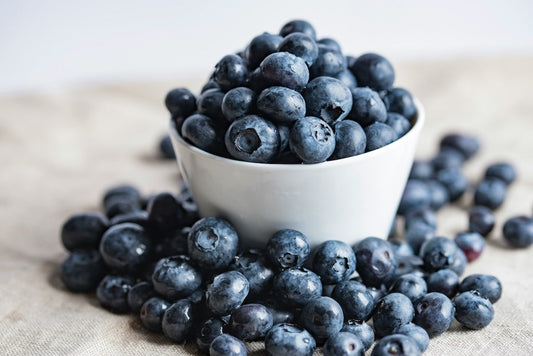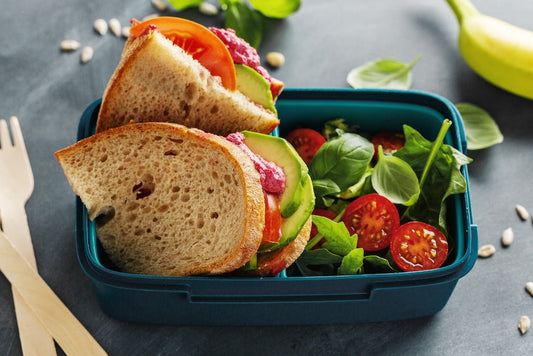A healthy intestinal flora is crucial for your well-being. It not only aids digestion, but also influences your immune system and mental health. If your gut gets out of balance, it can lead to complaints such as bloating, fatigue or a weakened immune system. With a targeted intestinal cleanse, you can restore balance. In this article, you will learn what a colon cleanse is, how it works and what role nutrition and nutrients play in it. Read on and discover how you can optimally support your gut!
High-fiber Verival breakfast – discover it here!
What exactly is a colon cleanse?
A gut cleanse is designed to restore the balance of your gut flora and improve your digestion. It is often recommended for complaints such as bloating, indigestion or after antibiotic treatment, as these can disrupt the balance of gut bacteria. The aim is to reduce harmful bacteria and strengthen the “good” bacteria again.
How does a gut cleanse work?
An intestinal cleanse usually consists of several phases:
- Cleansing: The intestines are freed from harmful substances, often through a high-fiber diet or special preparations.
- Restoration: In this phase, probiotic foods or supplements are added to increase the good bacteria.
- Maintenance: With a long-term, healthy diet, you can ensure that the intestinal flora remains stable.
Who should do an intestinal cleanse?
An intestinal cleanse is particularly useful for people with digestive issues, after taking antibiotics or during periods of prolonged stress. It can also help with general fatigue or a weakened immune system.
What does a healthy diet really consist of?
A healthy diet not only gives you energy, but also all the important nutrients your body needs. This means that fresh, unprocessed foods are in the foreground. You should avoid sugary snacks or ready meals, as they can damage your gut.
The three most important building blocks
- Macronutrients: carbohydrates, proteins and healthy fats provide energy and support the body in its functions.
- Micronutrients: vitamins, minerals and trace elements strengthen your immune system and promote the health of your cells.
- Dietary fiber: they are essential for healthy digestion and act as food for the good bacteria in your gut.
Variety is the key
A colorful mix of fruits, vegetables, whole grains, legumes, and high-quality protein sources ensures that you get all the important nutrients.
Why is healthy eating so important for your gut flora?
The trillions of bacteria in your gut need food to survive. What you eat influences which bacteria multiply. A high-fiber diet promotes good bacteria, while sugar and unhealthy fats favor harmful bacteria.
Impact on the immune system
Around 70% of your immune system is located in your gut. A healthy gut flora protects you from infections and supports your immune system. An unhealthy diet can weaken this protective function, making you more susceptible to illness.
Preventing inflammation
Poor eating habits can cause inflammation in the body. A healthy gut flora can have an anti-inflammatory effect and thus reduce the risk of chronic diseases such as diabetes or cardiovascular problems.
Breakfast – how can I make sure I get the right nutrients in the morning?
Breakfast sets you up for the day. Eating a balanced breakfast in the morning provides your body with energy and important nutrients that promote your intestinal flora.
What makes a healthy breakfast?
- Fiber: oats, whole grain bread, or chia seeds promote digestion.
- Protein: plain yogurt, eggs, or plant-based alternatives like tofu support cell renewal.
- Healthy fats: nuts, seeds, or avocado provide energy and omega-3 fatty acids.
Mistakes to avoid
A breakfast high in sugar, such as cornflakes or sweet pastries, may give you a short-term energy boost, but it will cause you to experience an energy low later on and can disrupt the balance of your gut flora.
Probiotics vs. prebiotics – an explanation
Prebiotic breakfast – our Verival promise for your gut!
What are probiotics?
Probiotics are live microorganisms that help your gut to stay healthy. They promote the good bacteria and support digestion. You can find probiotics in foods such as natural yoghurt, sauerkraut or kefir, as well as in special food supplements.
What are prebiotics?
Prebiotics are non-digestible fibers that serve as “food” for the good intestinal bacteria. They promote the growth of bifidobacteria and lactic acid bacteria. Foods such as oats, garlic, onions, and bananas contain many prebiotics.
Why do you need both?
Probiotics and prebiotics work hand in hand. While probiotics bring the beneficial bacteria into your gut, prebiotics ensure that they can multiply and thrive. Both are essential for a successful intestinal treatment.
What do prebiotics have to do with an intestinal treatment?
Without prebiotics, an intestinal cure will not work optimally. They create the ideal conditions for the good intestinal bacteria to multiply.
How do prebiotics work?
Prebiotics promote the production of short-chain fatty acids in the intestines. These fatty acids strengthen the intestinal wall and help keep harmful bacteria at bay. They also aid digestion and ensure regular bowel movements.
Prebiotics in practice
To get enough prebiotics during a bowel cleanse, you should incorporate high-fiber foods such as oats, chicory, or artichokes into your diet every day.
What does it mean to have a healthy gut?
Gut health is when the bacteria in your gut are in balance. Good bacteria should be in the majority to ensure smooth digestion and a strong immune system.
Signs of a healthy gut
A healthy gut is characterized by regular bowel movements, a strong immune system, and good overall health. If your digestion is working smoothly, you can be sure that your gut is in balance.
Factors that affect your gut health
In addition to diet, other aspects also play a role:
- Stress: Chronic stress can disrupt the intestinal flora.
- Sleep: A healthy sleep-wake cycle helps the intestines to regenerate.
- Exercise: Regular exercise promotes intestinal motility and blood circulation.
Oats: the perfect starting point for a healthy diet
Oats are a true superfood for your intestines. They contain a lot of fiber, which promotes digestion, and provide energy for the whole day. They are also versatile and easy to integrate into a gut cleanse.
The effect on the intestinal flora
Oats contain beta-glucans, a special type of fiber that promotes the growth of good intestinal bacteria. At the same time, they have an anti-inflammatory effect and strengthen the intestinal wall.
Conclusion
A gut cleanse can have a lasting positive effect on your health if you do it right. Eat a balanced diet with probiotics and prebiotics to strengthen your intestinal flora. Even small changes, like eating a healthy breakfast or cutting out sugar, can make a big difference. With these tips and the right knowledge, you are well prepared to take care of your gut and stay healthy in the long term. Your gut will thank you for it!
























